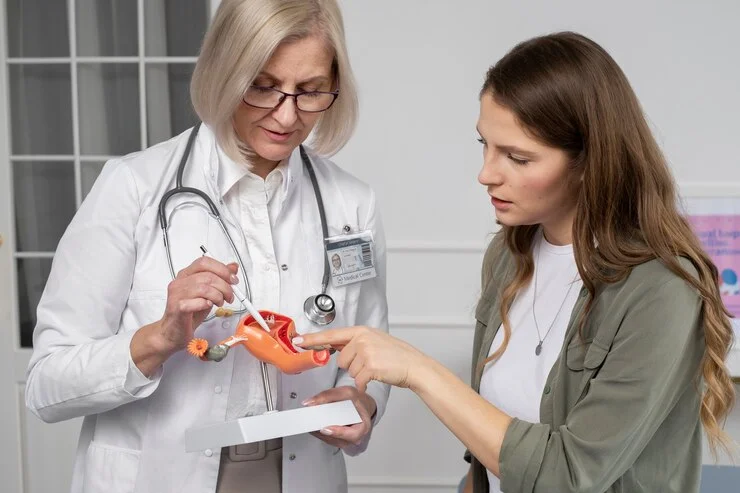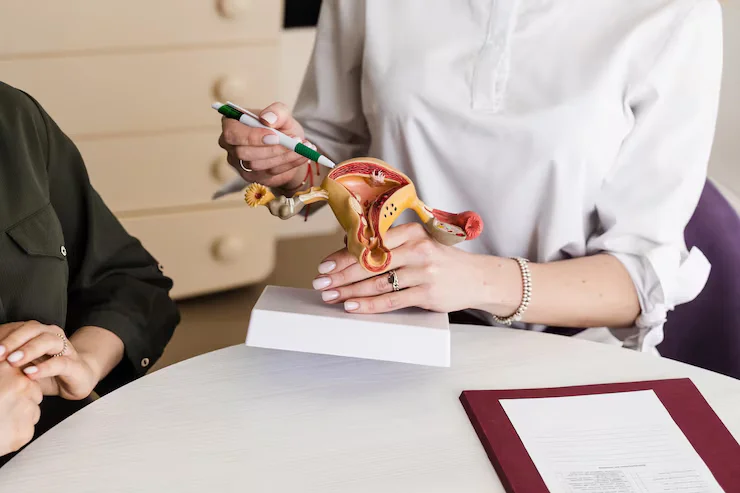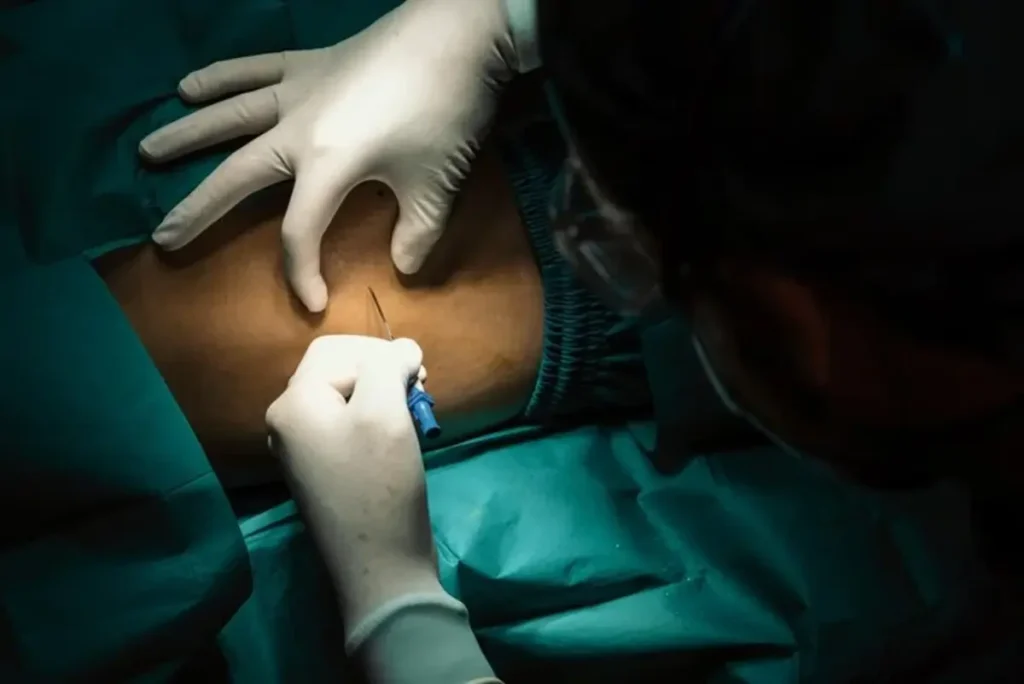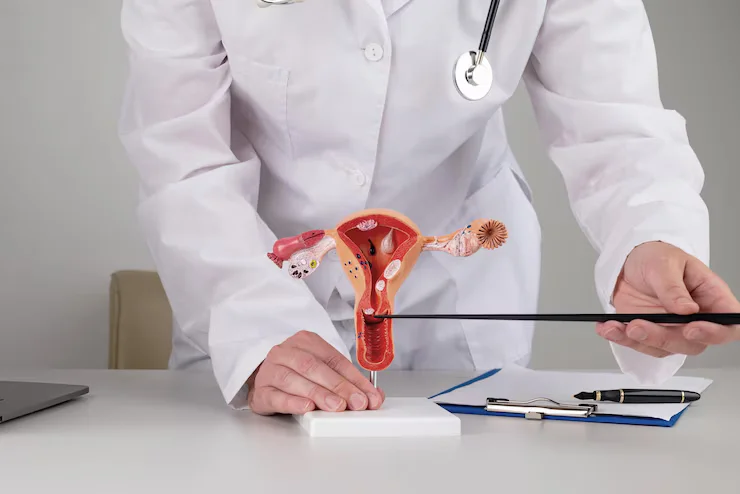-
Ganesh Talkies, Kolkata
Ganesh Talkies, Kolkata

Discover the best post-surgery care tips after a hysterectomy for a smoother recovery. Learn how to manage pain, diet, and emotional health during your healing journey with guidance from one of the best lady gynecologists.

A hysterectomy/Uterus removal is a major surgery that involves the removal of a woman’s uterus. While the surgery may be life-saving or necessary for addressing a variety of health issues, the recovery process can be lengthy and requires proper care to ensure a smooth transition to health. Post-surgery care is critical not only for physical recovery but also for emotional healing.
Whether you’re recovering from an abdominal, vaginal, or laparoscopic hysterectomy, understanding how to properly care for yourself post-surgery is essential. In this comprehensive guide, we’ll explore the best post-surgery care tips after a uterus removal, which can help you recover faster, feel more comfortable, and improve your overall well-being.
Proper post-surgery care is essential for reducing the risk of complications and accelerating your recovery. After a uterus removal, your body is going through significant changes—whether it’s healing from surgery or adjusting to hormonal shifts if your ovaries were removed. Taking the right steps can make a considerable difference in how quickly you heal and how well you feel during your recovery.
Ignoring post-surgery care can lead to complications such as infection, prolonged pain, or even internal issues like scarring. For the best outcome, following post-surgery instructions, managing your lifestyle and diet, and addressing emotional health are all crucial aspects of healing.

One of the most important steps in your recovery is following the guidance provided by your gynecologist. Each surgery and patient is unique, so your doctor will tailor your recovery plan to your specific needs.
While it’s important to take plenty of rest in the initial days, staying too inactive for long periods can lead to complications like blood clots. After your doctor clears you, try to move around gently to keep your circulation going. However, avoid heavy lifting, strenuous exercises, or any movements that could put stress on your healing body.
It’s common to experience some discomfort or pain after a hysterectomy, but this can usually be managed with prescribed medications. Pain relief is essential for promoting rest and maintaining a positive attitude throughout your recovery.
After surgery, your body needs the right nutrients to heal. Proper nutrition can speed up the healing process, maintain your strength, and prevent complications like constipation, which is common after surgery due to pain medications.
Whether you’ve had a vaginal, laparoscopic, or abdominal hysterectomy, proper care of your incisions is necessary to avoid infections and promote faster healing. Ensure that the area is kept clean and dry, and follow your doctor’s instructions carefully when it comes to wound care.
Undergoing a hysterectomy can also be emotionally challenging. Whether it’s due to hormonal changes, the physical aspects of the surgery, or the psychological impact of losing fertility, it’s important to give yourself space to heal emotionally.
If your ovaries were removed during the hysterectomy, you might experience symptoms related to menopause, such as hot flashes, mood swings, and vaginal dryness. Your gynecologist may recommend hormone replacement therapy (HRT) to help manage these symptoms.
While most women recover well from a hysterectomy, it’s important to keep an eye out for complications that may require prompt attention. These can include infections, excessive bleeding, or blood clots.
Also read:- Healing After Hysterectomy: Comparing Recovery for Laparoscopic and Abdominal Procedures

Full recovery can take anywhere from 6 to 8 weeks, but it may take longer depending on the type of uterus removal, your overall health, and any complications. It’s important to be patient with your body and avoid rushing the healing process.
After a hysterectomy, you should avoid strenuous physical activities and exercises for at least 6 weeks. Your doctor will give you a clear timeline on when it’s safe to start light exercises such as walking. Gradually reintroduce physical activity based on how you feel.
Yes, hormonal changes can affect your emotions after a hysterectomy, especially if your ovaries were removed. It’s common to experience mood swings, sadness, or anxiety. Talking to a counselor or therapist can help you navigate these changes.
It’s advisable to wait at least 6 weeks before resuming Physical relations after a hysterectomy. Be sure to follow your gynecologist’s advice, as recovery times may vary.
Some risks associated with hysterectomy include infections, excessive bleeding, blood clots, and injury to surrounding organs. However, with proper care and monitoring, these complications are rare and can be managed effectively.
Recovery after a hysterectomy is a gradual process, but with the proper care and attention to both your physical and emotional needs, you can ensure a smoother and quicker healing journey. By following the post-surgery care tips after a hysterectomy, you can reduce the risk of complications, manage discomfort, and take the necessary steps to regain your strength and confidence. Seeking advice from the best lady gynecologist in Kolkata can provide you with personalized care and guidance throughout your recovery process.
Remember that everyone’s recovery experience is unique, and it’s important to listen to your body and seek guidance from your healthcare provider whenever necessary. With time, patience, and proper care, you will be able to fully heal and move forward after surgery.